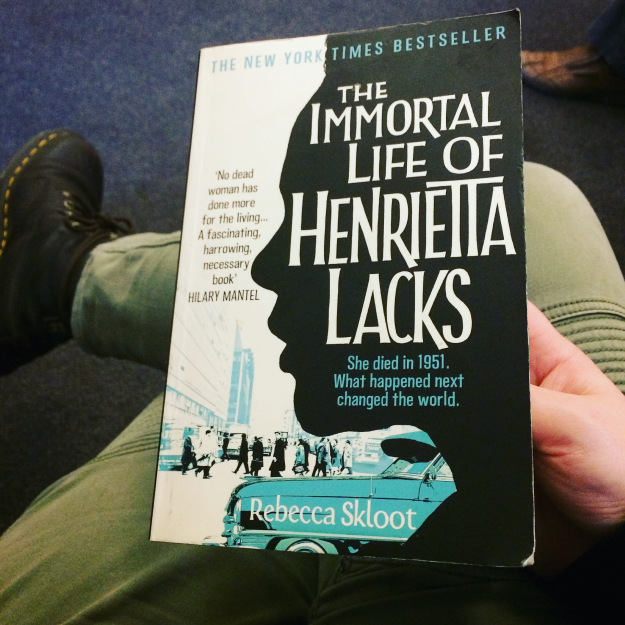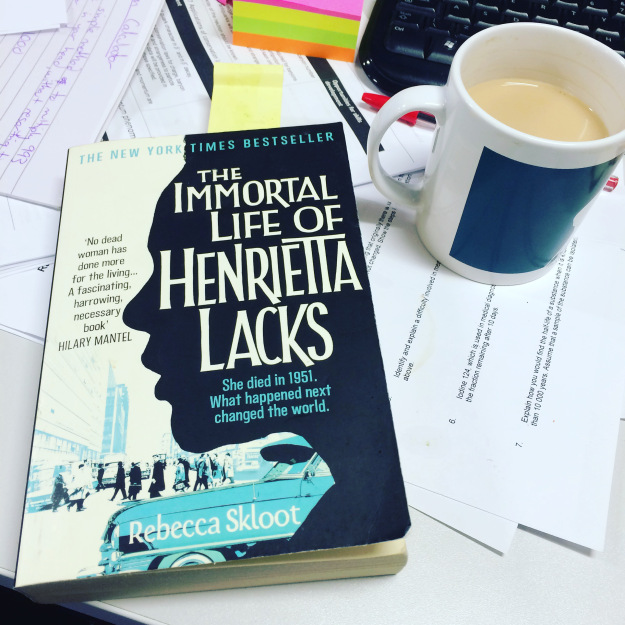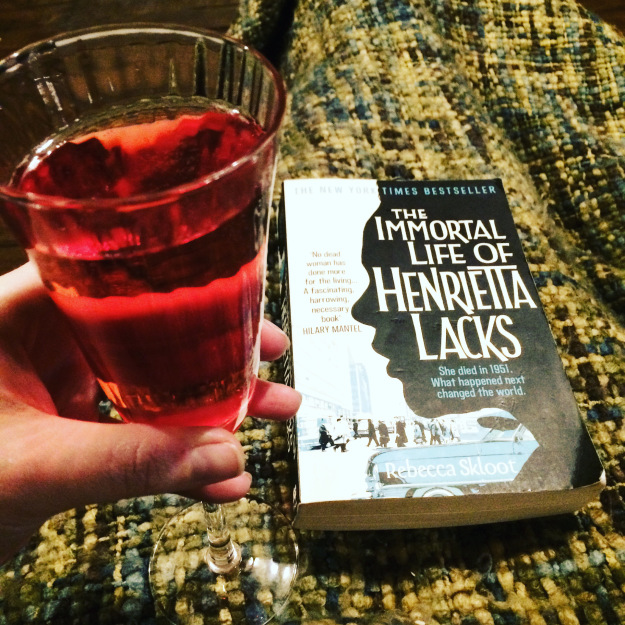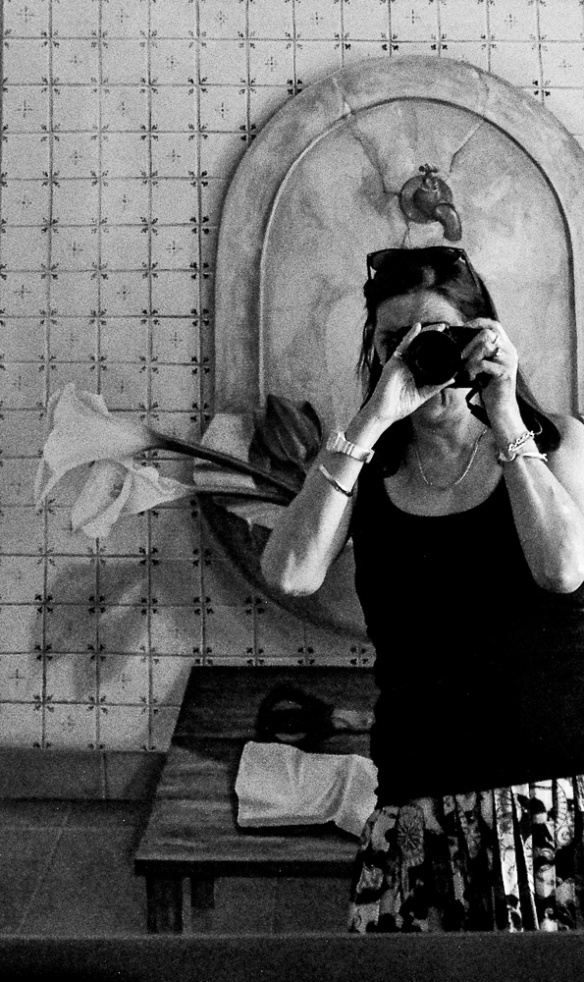Rebecca Skloot has written a triumphant book about Henrietta Lacks and her immortal cells that have revolutionised cell biology. Skloot has turned the scientific story of an exceptional cell line into a deeply human story about family, loss, and understanding.

Enter a caption
In case you don’t know the story of these amazing HeLa cells, from the back of the book:
Her name was Henrietta Lacks, but scientists knew her as HeLa. Born a poor, black tobacco farmer, her cancer cells – taken without her knowledge – became a multimillion-dollar industry and one of the most important tools in medicine. Yet Henrietta’s family did not learn of her ‘immortality’ until more than 20 years after her death, with devastating consequences… Balancing the beauty and drama of scientific discovery with dark questions about who owns the stuff our bodies are made of, The Immortal Life of Henrietta Lacks is an extraordinary detective story in search of the soul and story of a real woman, whose cells live on today in all four corners of the world.
Henrietta died in 1951, and it wasn’t until the 1970s that her family became aware of the HeLa cell line. They then spent over 20 years without any real understanding of what it meant for their mothers cells to be essential for medical testing. They heard stories about them being cloned, sent to space, blown up in atom bombs, mixed with animal DNA, all sorts of things. None of them understood the science, and they imagined all sorts of horrific scenarios. The family were also aware that some people had made an awful lot of money by selling these cells from their mother.
“… If our mother so important to science, why can’t we get health insurance?”
Lawrence Lacks, Henrietta’s son.

lunchtime reading!
Eventually, Skloot wins the trust of the Lacks family, particularly Deborah Lacks, Henrietta’s daughter. This is in the early 2000s. It’s not an easy trust to win, but eventually Deborah begins to join Skloot on research visits, and they begin to uncover the truth about what happened to Henrietta Lacks. The chapters where Deborah, and her brother Zakariyya, go to meet a researcher and see their mother’s cells under the microscope for the first time is incredibly moving.
Deborah then goes with Skloot to the institution her sister lived and died in and finds they have her autopsy records and a photograph of her. This is part of the human story of the Lacks family, and is connected to the HeLa cell story because Deborah may have known more about her sister if her mother hadn’t died so young. It’s so real the pain and suffering Deborah has been through. It’s completely heartbreaking. She has had to grow up without a mother, as well as trying to understand what happened to her mother after her death, and then discovering information about her sister, is incredible.

prosecco and campari to help with evening reading.
The Immortal Life of Henrietta Lacks manages to be a fantastic introduction to the very basics of cell biology and how research is carried out on cells. It’s a wonderful story of scientific discovery and advancement. It is equally a moving story of family and loss. Thirdly it deals with medical ethics – the ethics of cells being taken from patients without any consent, the fact that people have made millions from the cells while the family have stayed very, very poor, and the fact that this is a story of a white, male establishment taking advantage of a poor, black woman.
Lawrence fell back in his chair and stared into his lap, his smile collapsing. After a long quiet moment, he turned and looked into my eyes.
“Can you tell me what my mama’s cells really did?” he whispered. “I know they did something important, but nobody tells us nothing.”
When I asked if he knew what a cell was, he stared at his feet as if I’d called on him in class and he hadn’t done his homework.
“Kinda,” he said. “Not really.”
I have barely any knowledge of biology (physics is my specialist science knowledge topic!) and I found this book fascinating. Just learning about the impact Henrietta’s cells have had on the world would be a brilliant story – it’s just made even better by all the other aspects. I would really highly recommend it. I can’t wait to try and track down the TV movie made of The Immortal Life of Henrietta Lacks earlier this year – staring Oprah and Rose Byrne!
Advertisements Share this:





